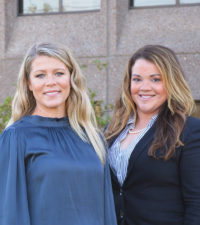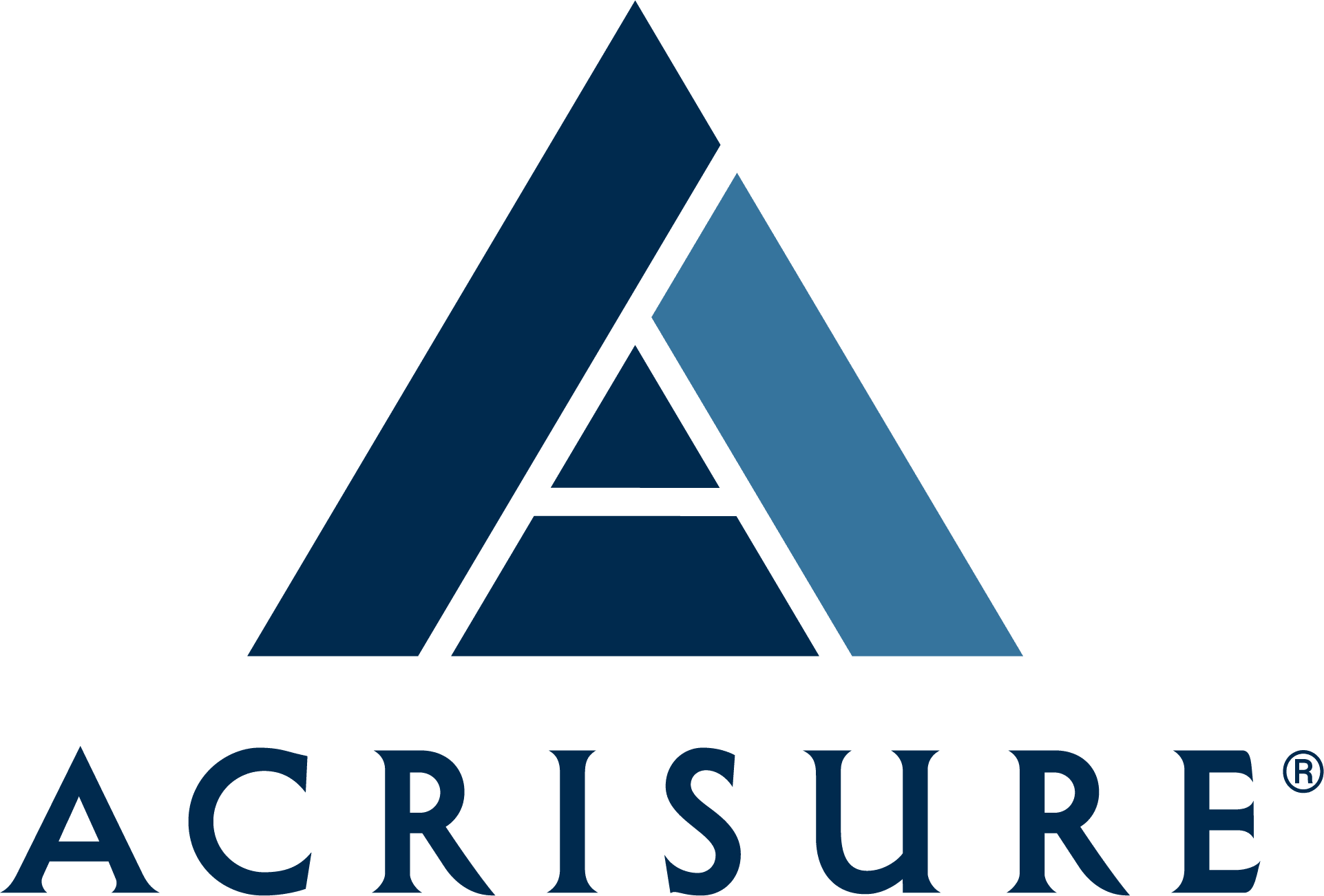
Episode 3:
An Intro to the E-Mod

Featuring Jen Barrett & Lindsey Farrar
For our third episode of Got You Covered, Ryan sat down with Director of Risk Management and VP, Jen Barrett along with Lindsey Farrar, Risk Management Advisor to talk all-things E-Mod! They’ll break down what it is, why it’s important, how to calculate, and other frequently asked questions.
Transcript
Intro – Ryan (Host): Welcome to got you covered presented by Hickok and Boardman Insurance Group, the podcast where we unpack the countless ways in which insurance affects our lives, and so you can properly manage your unique risk.
Ryan: Well, welcome back everybody to another episode of got you covered presented by Hickok and Boardman Insurance Group. I am your host, Ryan Lee, and I’m a client advisor here at Hickok and Boardman. Today we are talking about all things the Experience Mod for workers compensation, and I brought in two of probably the most knowledgeable people that I know when it comes to workers compensation. Jen Barrett, she’s the VP and Director Of Risk Management here at Hickok and Boardman and Lindsay Farrar, Risk Management Advisor here at Hickok. And Boardman, welcome to the podcast. Lindsay.
Lindsey: Thanks for having us, Ryan. We’re happy to be here!
Ryan: And welcome, Jen.
Jen: Thank you for having us. Awesome. Yeah.
Ryan: So, I mean, let’s, let’s talk about this. This is kind of like a key differentiator for us in our industry And Hickok and Boardman, we’re the experts of worker’s compensation, right. But for those who don’t even know what it is, what is your experienced mod?
Lindsey: What is your experience mod? So your experience mod is something that compares you directly to others within your industry that are like-sized businesses with similar class codes of employees. The experience mod generates data from three years of loss history excluding the current policy term. Why does it exclude the current term? Because it’s undeveloped. So, sometimes those losses are still open with exposure that could be growing. And we wouldn’t want that to negatively impact your mod.
Jen: It’s also a factor that’s multiplied by your premium. So, it’s a big deal when you’re looking at the end cost of what your workers compensation is.
Ryan: Yeah. Okay. That’s great. So, I’m sitting there listening to it. And I’m like, I’m following that. Like that, that makes total sense to me. The average business owner might be asking, okay, like, that’s great. So, I have this experience mod. It assesses me on how safe I am with my peers. Why should I care about that, though? Why is that a big deal? Like, do I even have any control over that?
2:43
Lindsey: Yeah, so worker’s comp is one of the most expensive lines of insurance for your business. And it’s actually one of the only lines of insurance that we can control. So here at Hickok, and Boardman, we have a really robust value-added service team that helps you with your experience mod, your losses, controlling your exposures. So, as part of that, we have to look at the long picture with your Experience Mod. So if you come to us, and your mod is a 1.0, that’s industry average. So, for me, I look at that, and I say, we’re doing okay, we’re passing High School, that’s a C. But I want to be better than average. So, I want to be below one. And if I’m below one that’s better than average.
So that’s again, comparing you directly to your competition, passing with great grades. Yeah. If that’s above a one, then you’re quote-unquote, worse than average. That’s okay. That’s why we’re here because we can help you with that.
So, when you have a mod that’s above a one, that can actually impact you, especially if you’re in an industry, such as construction, where you’re bidding on jobs. You have to build in that increased cost that you’re paying, and your workers compensation premium, because your mod is above one. And sometimes that can limit the ability to bid on some of these jobs, because they will specifically say you may bid on this job if your mod is a one or below.
Ryan: Wow. That’s crazy.
Jen: I think there’s other things too, such as bringing people back to work, using occupational health clinics, those are all ways that we can control claim costs, and, let’s be honest claims, are really what makes your experience mod on the higher side. So, there’s certain things that we can do from a safety perspective and from a claim management perspective, to lower your mod.
Ryan: Okay, so is it a pretty easy calculation? Or how is that calculated? I mean, it’s I know, it’s a little complicated. So is there a
Jen: “‘E equals M-C squared’”?
Ryan: Yeah! [Laughs]. How does it, how do you calculate it? And like, what, you know, what types of claims are factored in is are all claims counted? Like, how does this thing work?
Jen: Yeah, there’s expected losses for your industry, and that the easiest way to explain it is: Your actual losses over what’s expected of yours. I think.
Jen: Yeah, so as part of that, to Jen’s point, so there’s your actual versus expected. So For example, if you have a year where you have a huge growth in payroll, then your expected losses are going to increase. But if you continue to put in good data, that will actually help drive your mod down. So not only is it limiting the losses that you’re having, but it’s also continuing to stay stable in your payroll or growth. So sometimes we’ll see people who have actually had a significant decrease in payroll, but they haven’t had any more losses. And we will see the mod go up a couple points, that happens often and again, we want you to understand that your expected losses change as your payroll changes.
5:33
Ryan: Interesting. So as I’m looking at this, I’m thinking, you know, if I’m putting myself in the shoes of a business owner, and I’m thinking, boy, how can I make this better? I’m having some claims, but a lot of small claims. I’m going to ask you, can I just pay? Can I just pay for some of these claims? Is it going to affect my E-Mod? How does it affect my E-Mod? Should I pay? Maybe medical only claims if nobody’s losing time? How – What’s your recommendation there?
Lindsey: That’s a great question, Ryan. And we actually get that question a lot from clients and prospects. So that question is very state specific. So, I will first comment on Vermont, and this is applicable to Vermont, New Hampshire. Those claims when you pay out of pocket are not necessarily beneficial to you, you’re already pre-paying your workers compensation premium. And in those states, they’re deducted by 70%.
In your Experience mod, we have done projections where we have added three to five of those Medical Only small claims into your mod, and taken them out. And it doesn’t even change it by a point. The rule that in states Vermont, New Hampshire, that’s First Aid only truly as first aid only can have no follow up visits, no restrictions from work, and is really just one visit. So, it’s very specific. And sometimes people don’t understand that whole picture. In New York, it is a little different. Because in New York, those small claims are not deducted in your Experience Mod by 70%. All claims go in at full value. The rule, however, is written very, very similar, it is supposed to be a First Aid only claim: They cannot have more than two appointments. And they can’t have more than two days missed from work. So again, if you had specific questions about an incident that occurred and you wanted our opinion on whether or not that should be something you should pay out of pocket, definitely reach out to us with those specific examples.
Ryan: Interesting.
7:23
Jen: We also see a lot of people that consider first aid only claims as claims that we wouldn’t consider as a first aid only claim. So truly, the law is meant for first aid only, like scratches, something that you could treat on site. But you go to the clinic anyway, we see a lot of people put in strains, sprains, things that really have significant development potential. Those, in our opinion, should never be considered a first aid only claim, there’s just too much room for potential development, as I said before, and we see those claims typically blow up.
And then if you haven’t reported into the carrier, then you have a problem because the carrier wants by the time they actually get it. It’s, whatever, 10 days, 20 days down the line, and they don’t have the investigation time to really determine or control anything.
Ryan: Interesting.
Lindsey: The other piece on that, too, with the first aid only claims which a lot of people don’t understand is you actually still have to file the first report of injury in your state. And you have to file it with the Workers Compensation Board or the Department of Labor. So those still do have to be submitted there. They don’t necessarily have to go to the carrier at that point. But they do still need to be filed at the department level.
7:58
Ryan: Interesting. So, if I’m, so before I came to Hickok, and Boardman, I actually was in the nonprofit space, I led a nonprofit in the region for a while. And for me, a big thing was budgeting. How do I plan ahead? How do I think about what is this gonna’ cost? Like my payroll is the same, but is my cost gonna’ change still? Can you predict what an E-Mod is going to be?
Lindsey: Absolutely. So that’s something that our agency does that’s very unique, is we do experience mod projections. And the timing of that is very critical. So when we do that, it’s about seven months prior to your renewal. Because your mod is actually calculated, even though you don’t have it yet, six months prior to your to your renewal. And that data is given by your carrier – by your workers compensation carrier – at that six month mark. So, we like to get ahead of it because if we see that there’s any losses that have open reserves that could potentially be taken down, we work with the carriers to take those down. And again, both Jen and I and another on our team, we’re licensed adjusters in Vermont, New York, and New Hampshire. So we have that experience to work with our carriers, adjusters and assist them in making the right call when it comes to those reserves. We are able to put this through our software and we are able to project what your mods going to be and that’s usually within you know, a point or two. So you have that data way ahead of time. And you can plan from a budgeting perspective.
Ryan: That’s awesome.
Jen: I would also say, inflated mods typically come from people not looking at their claim data. Oftentimes, overstated reserves end up in experienced modifications, and it’s so unfortunate because the employer or the business is going to be penalized for something that they’re never going to end up using. And that’s why it’s such a big part of our process at Hickok and Boardman. At looking at reserves prior to the mod being calculated.
10:32
Ryan: I was gonna say, Have you come across situations where maybe a prospective client had a miscalculated experience mode, and we brought that to their attention?
Jen: It’s how we went a lot of business, honestly, I mean, we, when we have the experience mod worksheet and loss runs, that is the one thing we look at is: how much money has been left on the table here? And it’s, it’s unfortunate for the client, because they don’t realize that they have to look at it and the timeframes that they have to look at it, or even what a claim is worth, in their opinion. We’re lucky enough to know that if we see a shoulder replacement claim, we can generally put a finger on that and know that it’s sort of within the ballpark. But if there’s like a minor meniscus claim reserved for $100,000, we know that we’ve got probably 70,000 too much on that.
Ryan: Wow, that’s interesting. Real dollars, right there. Yeah. What is another really popular question that you are often asked? I would assume multiple states can be an interesting question related to experience mod, right? I’m a business owner, maybe in New York, but I’ve got employees working in Vermont and New Hampshire.
11:46
Lindsey: Yeah, I mean, I would say that – so again, the applicable states… So the New York State won’t have the discount in the experience mod, but the other states will. And again, it goes by the class code. So, your projected experience mod, your experience mod is going to be tailored to what that class code cost per state. So again, we see you know, a lot of times where somebody has, say, for example, they’re a New York employee, but they’re working in Vermont. And the claim kind of follows them to where they’re treating and where their paycheck comes from. So that is a great question, Ryan?
Ryan: Interesting. Well, this has been good. I’m sure we could talk about the experience mod for like 12 hours straight because we all get really excited about it. But if anybody out there listening is curious about their experience mod, reach out to our team at Hickok and Boardman. We can certainly help answer your questions or at least give you some guidance. Any parting words for the listeners today, Jen or Lindsey?
Jen: No, thank you for listening!
Lindsey: Yeah, thanks for having us and we look forward to hearing from you.
Ryan: Awesome! This has been another episode of got you covered presented by Hickok and Boardman Insurance Group. We’ll see you next time
